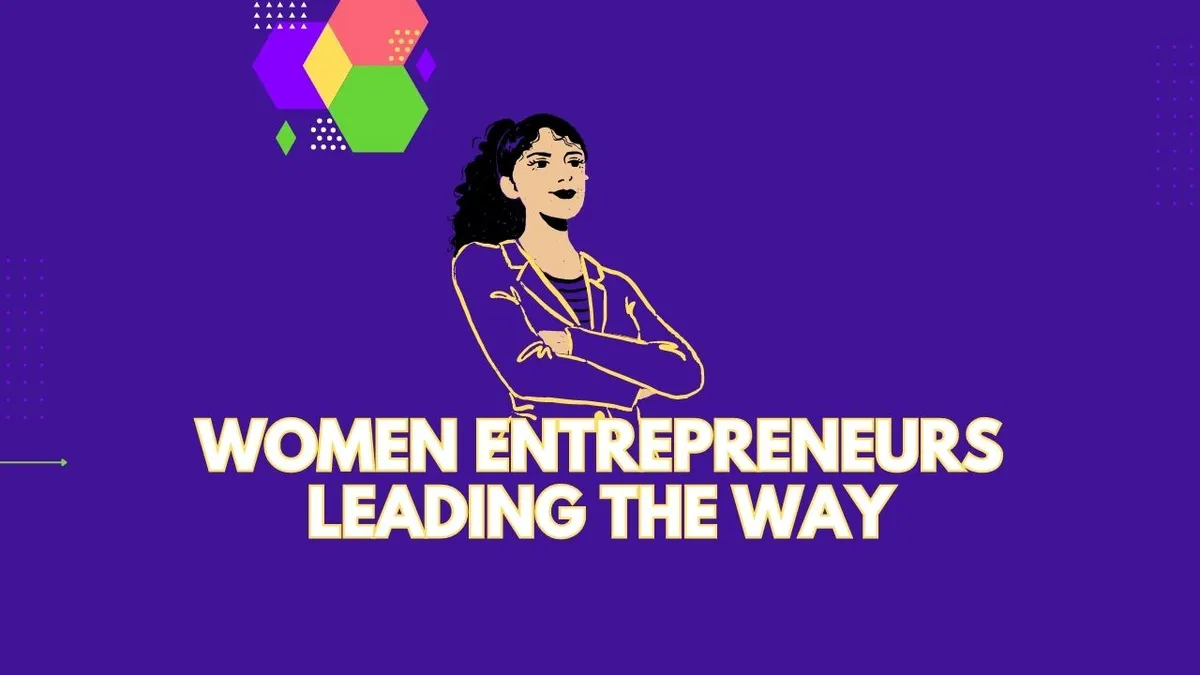Indian startup scheme is an initiative of the Indian government with main aim is to promote stratups, employment generation, and creation of wealth. Indian startup ecosystem generally covers the network of interaction among people, organizations and their environment. Startup entrepreneurship is important because it brings inventions, new jobs and economical dynamic forces into the business.
Women led-startups in India have increased to 18 percent in the last five years. According to the report, startups have the potential to create over 2 million job opportunities for women by 2030. It highlights the ecosystem’s unique ability to attract female talent. The report says that in five years, the number of women-led startups in India has increased significantly from 600 to approximately 14,400. This demonstrates admirable growth and a positive trend in the startup ecosystem toward gender equality. But the challenges continue to persist, while both men and women embark on their startup jouneys, women frequently experience slower advancement in terms of job tenure and seniority.
Barriers Faced by Women Entrepreneurs
Women entrepreneurs face a host of challenges. The primary challenge is limited funding. Women-led businesses in the country lack access to capital due to the prejudices of investors and investors are reluctant to invest in women-led businesses. Moreover, many Indian women don’t have property or assets in their name, which comes up as a problem while applying for collateral loans or private financing. In order to invest in or run a successful business, the entrepreneur needs to be able to bear some inherent risk. Women often do not have financial freedom and do not have practice in making independent decisions. They also lack confidence in their own decisions which makes them risk-averse. Safety issues and limited mobility restrict women ability to travel for businesses purposes. A Harvard study found that venture capitalists often ask different questions from women than men creating gender biasness. Men tend to be asked questions about the potential gains, while women are questioned about losses. Men are asked questions about company vision; women are asked about work-life balance. Startups with female founders have 2.5 times more women in senior roles compared to the male founded ones. With 8 out of 10 men occupying Director-level positions while only 5 in 10 women are at the same positions in 10 years of their career.
Breaking Barriers: Success Stories and Initiatives
Despite all the challenges and barriers, the entrepreneurial landscape in India is witnessing a remarkable transformation, led by dynamic women who are breaking stereotypes and setting new benchmarks. Women entrepreneurs in India currently make up about 14% of the total entrepreneurs, equating to roughly 8 million women and they have significantly influenced the social and economic demographics of the country. They are active in sectors such as e-commerce, fashion, education, healthcare, and technology, bringing new ideas and approaches to traditional industries and creating innovative products and services.
Here is a list of few of those trailblazers who are pioneering new paths in initiating change or innovation:
- Richa Kar, Founder of Zivame, Richa revolutionized online lingerie shopping in India, overcoming societal taboos. She often shares insights on her LinkedIn about her journey and importance of perseverance in entrepreneurship.
- Falguni Nayar, Founder and CEO of Nykaa, Falguni, a self-made billionaire, transformed the beauty retail sector in India. On her LinkedIn, she frequently discusses leadership and the empowerment of women in business.
- Suman Agarwal, Founder of Image Consulting Business Institute (ICBI). Despite being a college dropout, Suman built ICBI into a leader in image consultancy. Her LinkedIn page is a source of inspiration and guidance for aspiring women entrepreneurs.
Government Sector Support
The Indian government recognizes the importance of encouraging female entrepreneurship and has launched a number of schemes and programs to assist and empower women in starting and growing their own businesses. Some of the schemes and initiatives are Annapurna Scheme, Udyogini Scheme, Stree Shakti Scheme, Bharatiya Mahila Bank Business Loan, Cent Kalyani Scheme, Mudra Yojana Scheme, Dena Shakti Scheme, Mahila Udyam Nidhi Scheme etc.
Driving Change: The Impact of Women-Led Startups
The increasing presence of women as entrepreneurs has led to significance business and economic growth in the country. Women-led startups are playing a prominent role in society by generating employment opportunities in the country, bringing in demographic shifts and inspiring the next generation of women founders.
By 2030, it is predicted that over 30 million women-owned companies could generate between 150-170 million jobs, potentially altering the economic landscape. Currently women contribute 22% to India’s GDP, which is below the global average of 45%. However, their influence in the business sector is a strong driver of economic development.
Conclusion
The landscape of women entrepreneurship in India is a proof of their undefeatable spirit and exceptional innovative skills. Despite the hurdles, women entrepreneurs are not only creating job opportunities and driving economic growth but are also challenging deep-rooted gender norms and stereotypes, thereby paving the way for a more inclusive and equitable society. Their journey marked by perseverance and adaptability, is an inspiring narrative of transforming challenges into opportunities.




